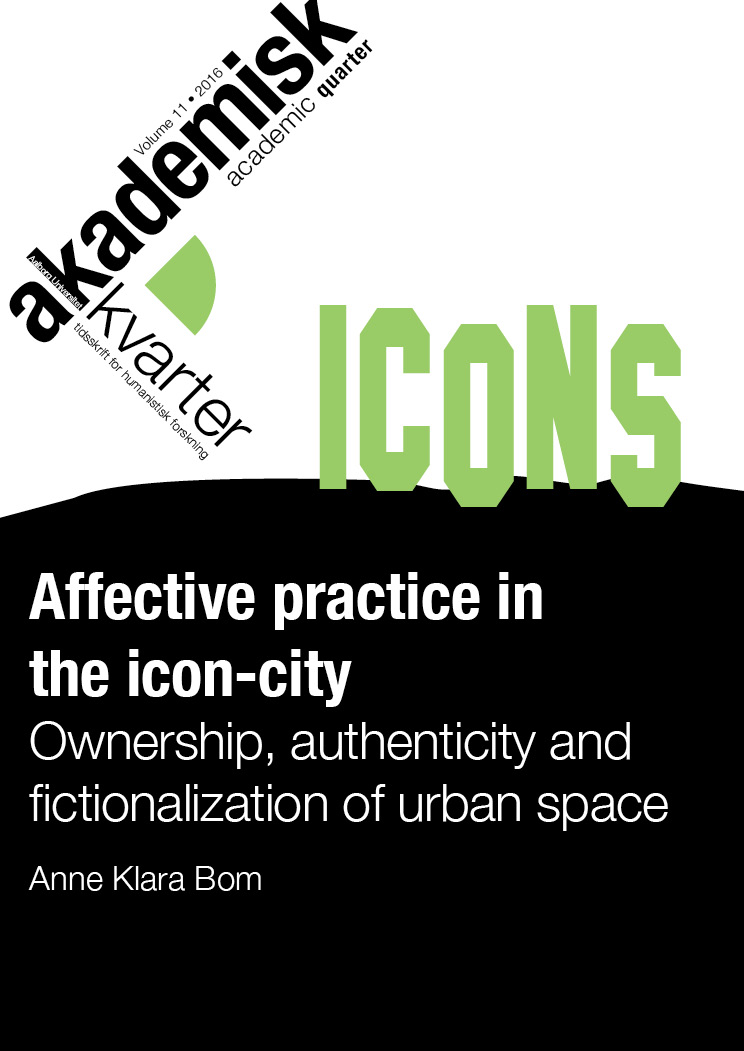Abstract | Abstract
An icon-city is a city where a pervasive narrative about an iconic event or figure is intentionally and explicitly attached to an urban space – an action that supplies the city with symbolic meaning because it is staged and experienced as the city of the specific icon. In this article, the focus of attention is on an icon-city where the icon is a historical person, namely the author Hans Christian Andersen and his city of birth, Odense. The article presents the concept icon-city as a setting for glocal heritage tourism and situates it as an analytical object for cultural studies. Thus, the icon-city is contemplated as an experiencescape where people represent themselves through the connection between the icon and the urban space. Methodically, the discourse analytical concept affective practice is put to use as a sensitizing concept in an analysis of the inauguration of the itinerary “Hans Christian Andersen’s Odense”. In the analysis, three significant themes are identified as pivotal research themes in studies of literary icon-cities: Ownership, authenticity and fictionalization of urban space.
